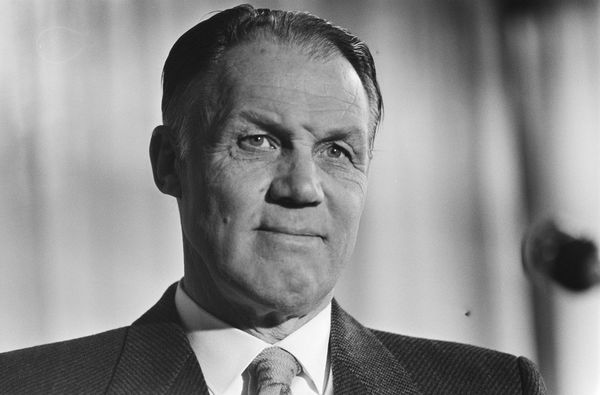

The role of coaches, much like tactics, has evolved in modern football and has proceeded to pretty much define success and failure, glory and gloom as present day football which depends upon as many factors as it does, or the line that separates the two. If the football being played is like music to the ears, then the gaffer is the choirmaster of this orchestra. In a game as convoluted as football, it would be unjust to equate greatness with trophies. Plus, another qualifying aspect for greatness is that it should stand the sands of time. Thus, someone like a Pep Guardiola might be having a purple patch which shows no signs of ending and can be single handedly be credited to making Leo Messi the tormentor in chief he is today, but it will be important to see how his records stand up, 50 years from now.
Here is a list of the 5 greatest coaches of all time, in no particular order. The defining criteria has been their strategic brilliance and their contribution to the game we now witness, especially in terms of tactics.
Jimmy Hogan
ADVERTISEMENT
Article continues below this ad

The oldest on this list, Jimmy Hogan was the progenitor of all things football when the game was still finding its feet in the early to mid 20th century. When the British Isles still looked at the game as an endurance test, Hogan popularized the idea of keeping the ball on the ground and passing, ironically to mainland Europe where the “intellectuals decided and talked football in the cafes”. Such was the influence of this Brit on the game that 2 ‘wunderteams” are attributed to him- the Austrian team of 1936 and the Magical Magyars. Gustzav Sebes, the man who masterminded Hungary’s annihilation of England at Wembley in 1953, sending shockwaves across the world, had this to say about the man- “We played football as Jimmy Hogan taught us. When our football history is told, his name should be written in gold letters”.
Bela Guttmann

When ambitious, outspoken, boisterous coaches are talked about, Bela Guttmann is as good a place as any to start off with. The self styled inventor of the 4-2-4, Guttmann says it was in Brazil in the late 50’s that he came up with the system before landing on European shores. Guttmann can put most journeyman footballers to shame, for he never stayed at a club for more than 3 years.
“The third year is always fatal” he liked to say. He is also credited to having discovered Eusebio, amazingly, in a hair saloon. But such a manager needs a tale as legendary to further his myth. Legend has it that after winning it’s second consecutive European Cup in 1962, against a Madrid side having the likes of Stefano and Puskas in their ranks, Benfica’s greatest manager asked the Benfica board for a pay rise. The Board refused, Guttmann left, with the words “Not in a hundred years will Benfica win the European Cup”. The ‘Guttmann Curse’, as the legend is known, maybe apocryphal, and realists might describe it as mad, but 53 years have gone by, and Benfica have failed 8 times in this pursuit at the Final hurdle. Eusebio is said to have even visited his former manager’s grave to pray for the curse to give. It still stands, as one of the most inexplicable occurrences in world football.
Victor Maslov

Absolutely unfairly, this man remains the most unknown one on the list, despite probably being the sharpest footballing brain of them all. The coach of the Dynamo Kyiv side of the 60s, the man affably known as ‘Granddad’ for the personal relationships he shared with his players, Maslov is the real brain behind 4-4-2, or football as it is known today. Taking inspiration from the irrepressible Brazilian sides of the ’58 and ’62 WCs, Maslov observed how the game could be won or lost in the midfield and how the Brazilians did it when their right wing forward dropped back. Granddad took it a step further, deciding to pull back both wing forwards back to transform the 4-2-4 into the 4-4-2. This all was done to help the defence, where Maslov preferred zonal marking to man marking, which he considered as the nadir of the game, for everyone involved. The high pressing game of Total Football is attributed to the Dutch for the USSR was a closed state for all practical purposes in the 60’s, and this is a travesty. Fittingly, the only player Maslov fell out with, went on to become a coach and another legend, at that – Valery Lobanovsky, the most decorated Eastern European coach of all time.
Helenio Herrera

“Football or War?- Football and War!”
This quote sums up probably the greatest motivational speaker to have ever stepped into the manager’s boots. A man who finally got managers to the centre stage, Herrera was as flamboyant as they come. He craved attention, took credit for his team’s victories, and used never seen before mind games to take off the pressure off his players. It is said that Herrera used to go out before KO at away grounds and stand in the middle of the pitch, shouting and mocking the “12th man” – the spectators of the away team, and goaded them into jeering him and expending their energies, so that when his team came out to play, the crowd was already tired. He emphasized the physical aspect of training like never before, and sessions under him were intense, brutal and almost military like. He tried to control the personal lives of his players as well, for he considered everything non-football as distraction.
But, what he is most famous for, is as the oft misunderstood and apparently negative ‘Catenaccio’ system, or the sitting deep and defending with a sweeper and relying on extremely quick counter attacking football, what naysayers affix to a “win at all costs” mentality. His ‘La Grande Inter’ side won 2 consecutive European Cups in 1964 and 1965, and the Cup was fittingly brought back to the Nerazurri in 2010, by Jose Mourinho. If tactics and attention seeking activities are anything to go by, if Herrera had a bastard child, it would have been Mourinho.
ADVERTISEMENT
Article continues below this ad
Rinus Michels

ADVERTISEMENT
Article continues below this ad
The ‘UEFA Coach of the Century’, was the man behind the most endearing aspect of the beautiful game. Michels is, for all practical purposes, the inventor of ‘Total Football’, mastering the style of play with his superbly gifted Dutch side of the 70s, having the likes of Johan Cryuff and Johan Neeskens in its ranks. A ruthless disciplinarian, he took Ajax from the depths of almost relegation, to the European Cup in 1971. He then led the Dutch side to the finals of the 1974 WC, with a style of flowing football only ever seen in the Magyars of the mid 50’s, the Brazil of 1970 and replicated by Barcelona of the present day. He also led the them to their only major trophy in international football, the Euro 1988. Johan Cryuff, often known as the most technically gifted brain of football and having shaped 2 modern day giants in Ajax and Barcelona, attributes any and everything he knows in football, to Rinus Michels.
ADVERTISEMENT
ADVERTISEMENT
ADVERTISEMENT
ADVERTISEMENT

